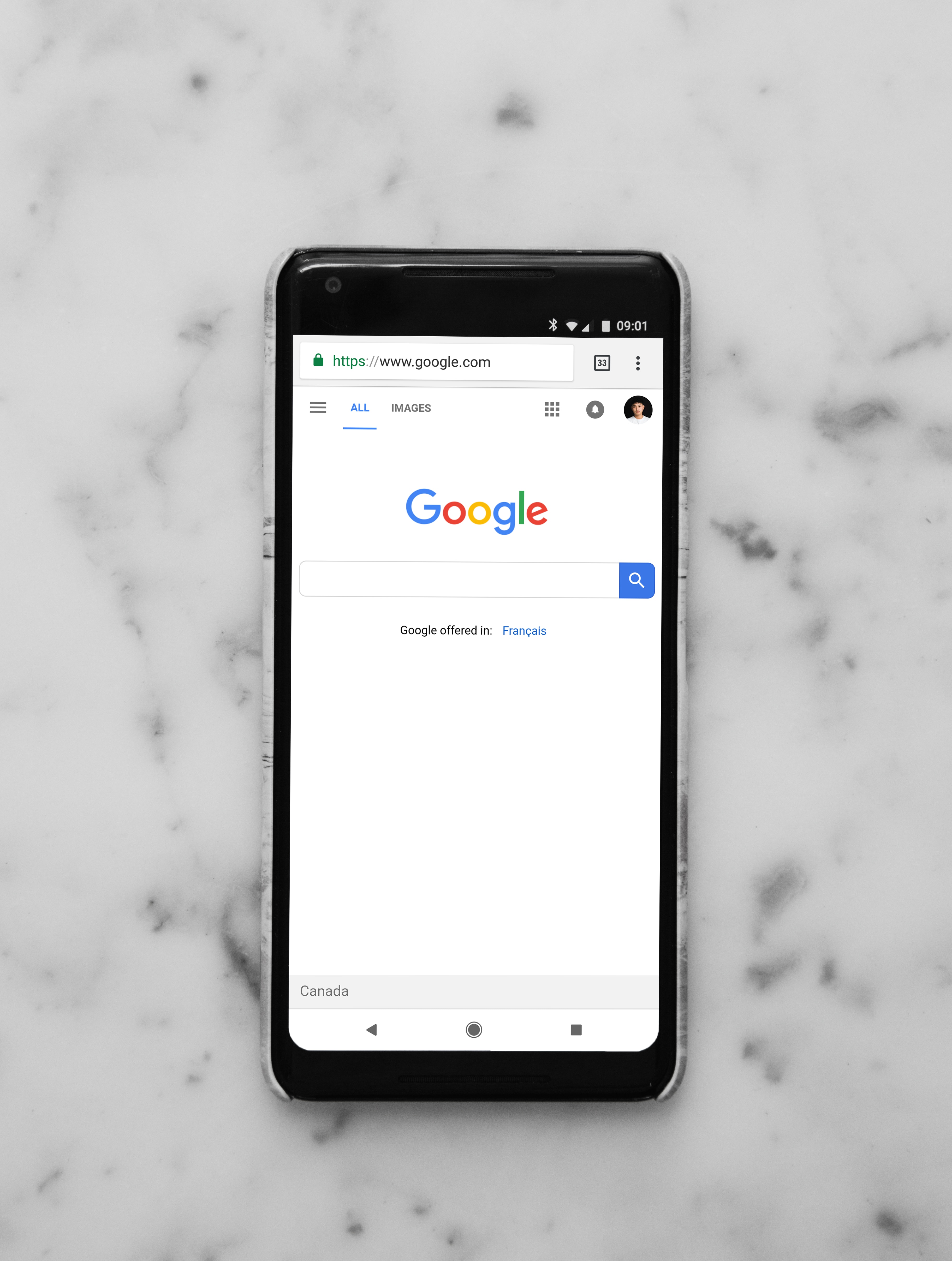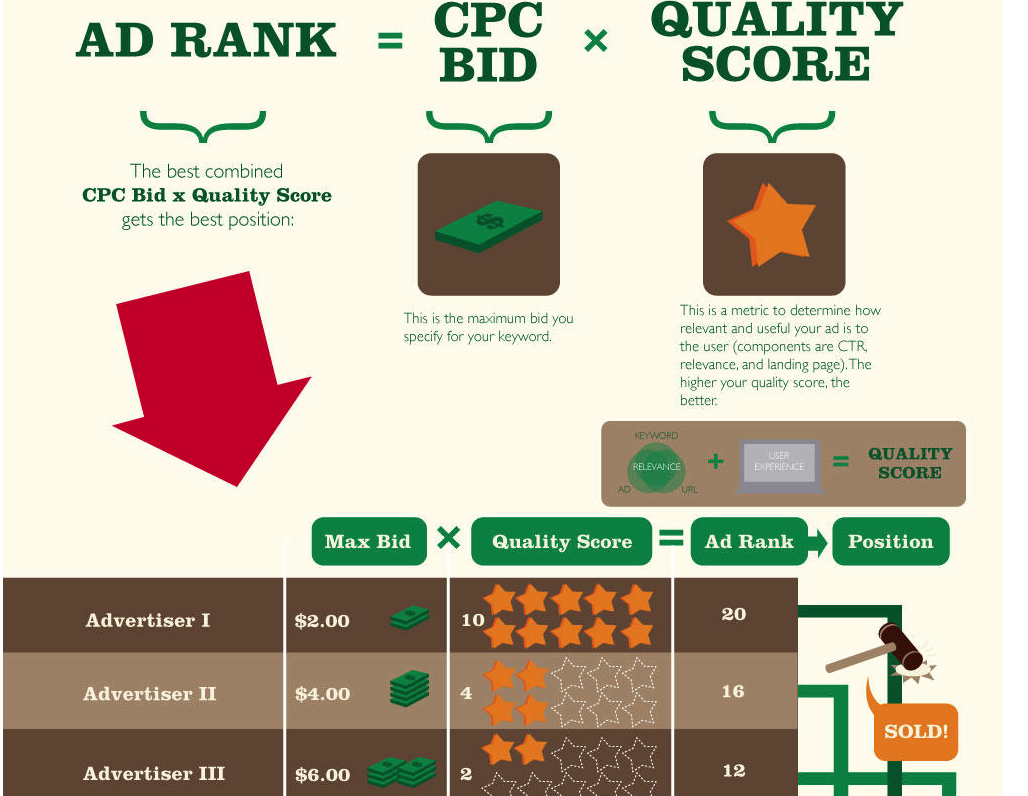Local Search vs. Organic Search vs. Paid Search: What You Need To Know
Getting your dealership to the top of the search results in Google is vital since 96% of all users never scroll past the first page.
Whether you're wondering if yours is at the top or how to get there, we've got some insights into local search, organic search, paid search, how they work, and what to focus on to increase your ranking for each area.
Without further adieu, let's dive in!
How Local Search Works
Local search is a search query that Google thinks has local intent (i.e. "donuts near me" or "New York pizza places") and it produces typically 3 results at the top of the search engine result page (SERP) with a map.
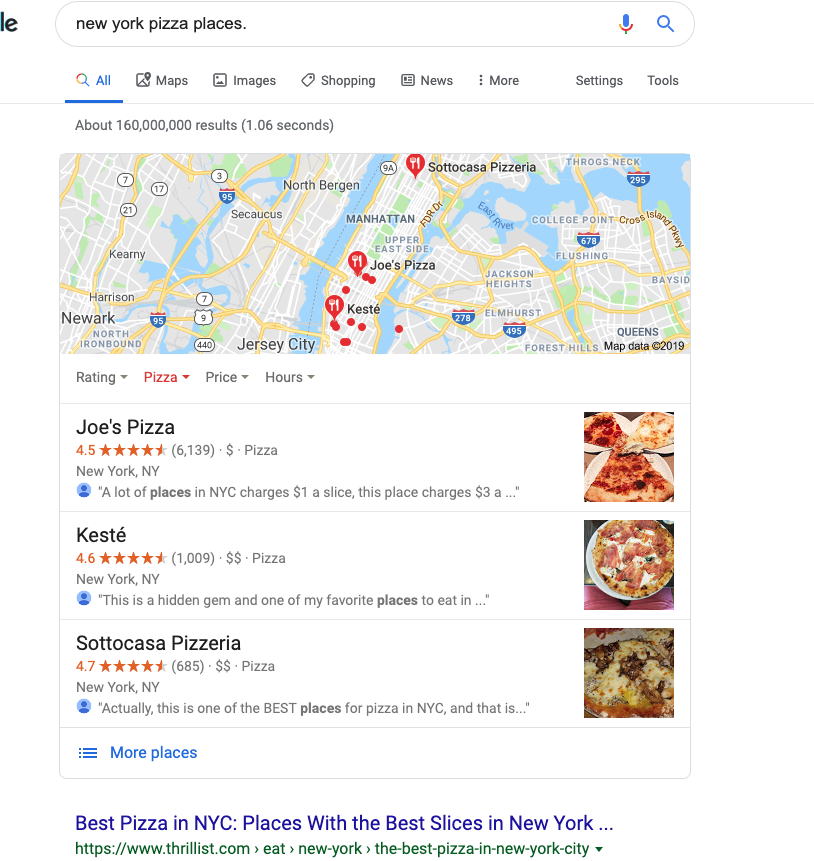
Now, these 3 results are pulled from 2 sources, Google My Business or Google Maps. You'll be able to come up in the local search results by creating a Google My Business listing and list it in Google Maps.
As far as local goes, Google has identified 3 major factors that play into how they rank these listings.
- Proximity - This is where Google thinks your store is physically located. Obviously with this ranking factor, Google wants to put the results closer to the search higher up, so it uses either the searcher's zip code (desktop) or Geolocation (smart phone) to determine what to show them.
- Prominence - This is essentially how important Google thinks you are. Through tracking website links, store/site visits, reviews (both number and age), and citations. Stores with more traffic, business, and reviews are likely to be ranked higher.
- Relevance - This is how relevant Google thinks you are to the query. Things like site content, SEO, keyword focus, business name, and review content are what Google looks at and ranks you with.
Now, while it's difficult to rank highly without all 3 of these things, it is possible. Google weighs prominence and relevance most highly, so by focusing on these areas you can improve the radius that your dealership comes up in.
A great advantage dealerships have with local ranking is that they're already a high-traffic, location dependent industry, and customers typically have a high-purchase-intent. Therefore, proximity is kind of taken care of within itself.
Want to find out where you rank? Here are a few resources to you can check out:
Need help listing your dealership in Google Maps, setting up Google My Business, or help ranking at the top? Edifice Automotive can help you establish and execute a quality marketing strategy.
How Organic Search Works
Underneath the 3 local results that Google produces, you'll find results that rank organically or naturally.
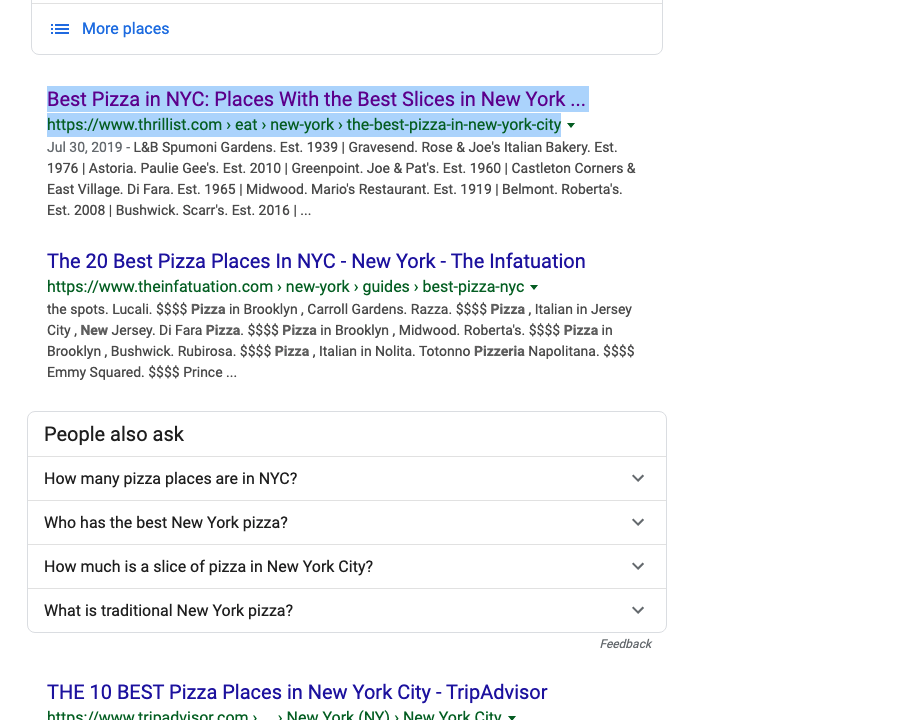
These results are what Google determines will answer the searcher's query, and they're almost always copy-heavy, well-optimized web pages.
For instance, in that query above, "new york pizza places" the organic results are all web pages that list out in detail the pizza places in New York and which ones are the best. As you can tell, Google pulls lengthy, optimized results based on search intent.
The same thing works for dealerships. If I'm looking for dealerships near me, Google will pull up a number of organic results, and ranking in this area is dependent on the content on your website and its overall SEO.
Ranking in this area is tricky, but a closer look at your dealership's site and current marketing efforts can identify where you could focus on in order to increase your ranking.
Contact us for a FREE consultation on increasing your organic ranking.
How Paid Search Works
At the very top of the SERP (whether in organic results or the maps section), Google will place the highest bids for a particular keyword or search query at the very top. These results are noted "sponsored" or "ad".
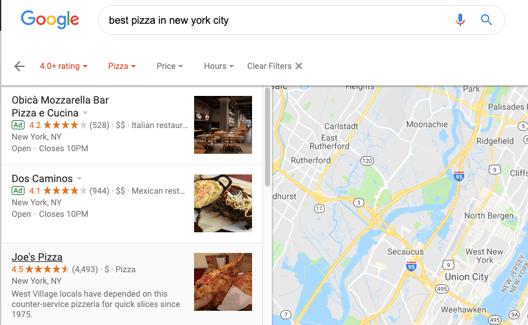
You can see the top two results are ads that those companies have paid for. Regardless of their web page SEO, page content, or pizza quality, they're the first thing that searchers see.
In order to get your ads to the top, you need to have quality ads with a solid maximum bid in order to be the top ad.
You submit your ad with a maximum bid. From there, Google scores it and gives it an Ad Rank
Interested in paid advertising? Get in touch with us to get a FREE consultation on running paid ad campaigns.
Which Should You Focus On?
The simple answer to this question is...yes.
You should focus on all 3 of these if you have the marketing capacity to do so; however, everything depends on your abilities and goals. Remember, dealership marketing isn't always a "one size fits all" approach.
If you have the dedicated staff or a dedicated marketing company to focus on improving your SEO (getting reviews, setting up data tracking, optimizing your site, etc...) then that would be a great option.
As well, if you rank high organically, it might be wise to double down on that approach.
Paid ads are a solid focus since buyer intent for dealerships is typically higher than most other industries, so all dealers should engage in this if possible.
Ultimately, you want to focus on all 3 if possible, but it's usually much more reasonable to start with one and work your way up, and identifying your current site traffic, lead sources, and ideal buyer's journey is key to your strategy.
If ranking high and increasing your lead acquisition is a priority, contact us for a FREE consultation on optimizing your site for search and guidance on ad campaigns.
Header image credit: unsplash

